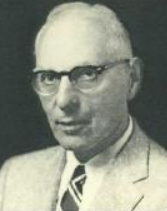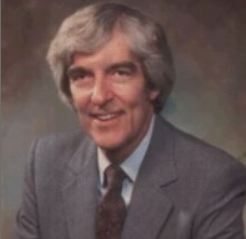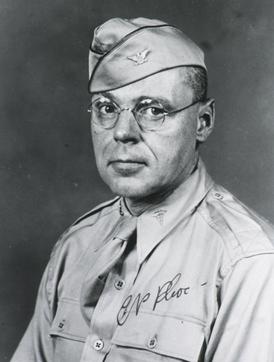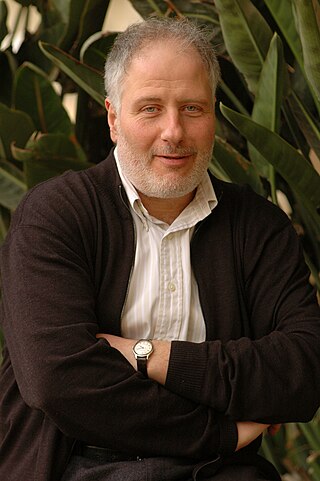Related Research Articles
Essiac is a herbal tea promoted as an alternative treatment for cancer and other illnesses. There is no evidence it is beneficial to health. In a number of studies Essiac either showed no action against cancer cells, or actually increased the rate of cancer growth.

Pralatrexate, sold under the brand name Folotyn, is a medication used for the treatment of relapsed or refractory peripheral T-cell lymphoma (PTCL).

Max Gerson was a German-born American physician who developed the Gerson Therapy, a dietary-based alternative cancer treatment that he claimed could cure cancer and most chronic, degenerative diseases.

Memorial Sloan Kettering Cancer Center is a cancer treatment and research institution in Manhattan in New York City. It was founded in 1884 as the New York Cancer Hospital. MSKCC is one of 72 National Cancer Institute-designated Comprehensive Cancer Centers. It had already been renamed and relocated, to its present site, when the Sloan-Kettering Institute for Cancer Research was founded in 1945, and built adjacent to the hospital. The two medical entities formally coordinated their operations in 1960, and formally merged as a single entity in 1980. Its main campus is located at 1275 York Avenue between 67th and 68th Streets in Manhattan.

William Donald Kelley was an American orthodontist who developed "non-specific metabolic therapy," an alternative cancer treatment, now known to be ineffective, which he based on his personal belief that "wrong foods [cause] malignancy to grow, while proper foods [allow] natural body defenses to work."
Hoxsey Therapy or Hoxsey Method is an alternative medical treatment promoted as a cure for cancer. The treatment consists of a caustic herbal paste for external cancers or a herbal mixture for "internal" cancers, combined with laxatives, douches, vitamin supplements, and dietary changes. Reviews by major medical bodies, including the U.S. Food and Drug Administration (FDA), the National Cancer Institute, the American Cancer Society, M. D. Anderson Cancer Center, and Memorial Sloan-Kettering Cancer Center, have found no evidence that Hoxsey Therapy is an effective treatment for cancer. The sale or marketing of the Hoxsey Method was banned in the United States by the FDA on September 21, 1960 as a "worthless and discredited" remedy and a form of quackery.

Josep Baselga i Torres, known in Spanish as José Baselga, was a Spanish medical oncologist and researcher focused on the development of novel molecular targeted agents, with a special emphasis in breast cancer. Through his career he was associated with the Memorial Sloan Kettering Cancer Center, Vall d'Hebron Institute of Oncology, and the Massachusetts General Hospital in their hematology and oncology divisions. He led the development of the breast cancer treatment Herceptin, a monoclonal antibody, that targets the HER2 protein, which is impacted in aggressive breast cancers.

Cornelius Packard "Dusty" Rhoads was an American pathologist, oncologist, and hospital administrator who was involved in a racist scandal and subsequent whitewashing in the 1930s. Beginning in 1940, he served as director of Memorial Hospital for Cancer Research in New York, from 1945 was the first director of Sloan-Kettering Institute, and the first director of the combined Memorial Sloan–Kettering Cancer Center. For his contributions to cancer research, Rhoads was featured on the cover of the June 27, 1949 issue of Time magazine under the title "Cancer Fighter".
Cancell, also called Protocel, Sheridan's Formula, Jim's Juice, Crocinic Acid, JS–114, JS–101, 126–F, and Entelev, is a formula that has been promoted as a treatment for a wide range of diseases, including cancer. Cancell is available in tablet and liquid form. Originally called Entelev, the formula was developed by biochemist James V. Sheridan. Sheridan sought to target the primarily anaerobic cell metabolism of cancer cells, claiming to lower cell potential leading to the destruction of cancer cells. The Cancell formula was tested by the National Cancer Institute and found to be ineffective against cancer, though Cancell continues to be marketed as a dietary supplement in the US.

Mate Hidvegi is a Hungarian biochemist and co-inventor of Avemar and Oncomar, fermented wheat germ extract based nutraceuticals.

Charles L. Sawyers is a Howard Hughes Medical Institute (HHMI) investigator who holds the Marie-Josée and Henry R. Kravis Chair of the Human Oncology and Pathogenesis Program (HOPP) at Memorial Sloan Kettering Cancer Center (MSK). HOPP is a program created in 2006 that comprises researchers from many disciplines to bridge clinical and laboratory discoveries.

Black salve, also known by the brand name Cansema, is an ineffective and unsafe alternative cancer treatment. The product is commonly classified as an escharotic—a topical paste which destroys skin tissue and leaves behind a scar called an eschar. Escharotics were widely used to treat skin lesions in the early 1900s, but have since been replaced by safer and more effective treatments. Escharotics, such as black salves, are currently advertised by some alternative medicine marketers as treatments for skin cancer, often with unsubstantiated testimonials and unsupported claims of effectiveness.
Robert E. Wittes was Physician-in-Chief of Memorial Sloan-Kettering Cancer Center, from 2002 until December 31, 2012. Prior to his appointment at MSKCC, he was Deputy Director for Extramural Sciences and Director of the Division of Cancer Treatment and Diagnosis at the National Cancer Institute, where he oversaw NCI's extramural clinical and basic research programs, including the evaluation of new therapeutics, diagnostics, and translational research. Wittes is a fellow of the American College of Physicians, a member of the American Association for Cancer Research, the American Society of Clinical Oncology, and the American Federation for Medical Research. In addition to his institutional affiliations, Dr. Wittes has served as editor-in-chief of the Journal of the National Cancer Institute and Oncology. He has served on the editorial boards of Clinical Cancer Research, Current Opinion in Oncology, The American Journal of Clinical Oncology; Cancer Investigation, and The International Journal of Radiation Oncology-Biology & Physics, among others.
George Bosl is an American cancer researcher, holder of the Patrick M. Byrne Chair in Clinical Oncology at the Memorial Sloan-Kettering Cancer Center in New York City, and is a professor of medicine at the Weill Cornell Medical College. In 1997, he was appointed chair of the Department of Medicine at Sloan-Kettering, a position which he held until 2015. In 2019, he was named Memorial Sloan Kettering's first ombudsperson.
The Oasis of Hope Hospital is a clinic in Tijuana, Mexico providing alternative cancer treatments to its customers. The clinic was founded by the physician Ernesto Contreras. After his death in 2003, the management of the hospital was taken over by his son, Francisco Contreras, and nephew, Daniel Kennedy.

Jack E. White was an American physician and cancer surgeon. He was the first black physician to train in surgical oncology at Memorial Sloan Kettering Cancer Center. White later directed the cancer center at Howard University College of Medicine where he also served as a full professor. He was elected to the Institute of Medicine in 1977 and he served as president of the American Cancer Society.
The Paul Marks Prize for Cancer Research is awarded by the Memorial Sloan Kettering Cancer Center to recognize cancer researchers who are making significant contributions to the understanding of cancer or are improving the treatment of the disease through basic or clinical research.
Viviane Tabar is an American neurosurgeon, the Chair of the Department of Neurosurgery at Memorial Sloan Kettering Cancer Center in New York since 2017.
Dr. Kathleen M. Foley is an American physician. She was an Attending Neurologist at Memorial Sloan-Kettering Cancer Center in New York City. She worked as a professor of Neurology, Neuroscience, and Clinical Pharmacology at Cornell University Weill Medical College. Foley made contributions toward making palliative care for cancer patients accessible. She headed the country's first pain service in a cancer center at Memorial Sloan-Kettering and was the medical director of the Supportive Care Program. In 1999, she became the director of the Open Society Institute’s Project on Death in America. Additionally, Foley was the Director of the WHO Collaborating Center for Cancer Pain Research and Education at Memorial Sloan-Kettering Cancer Center. She holds the Chair of the Society of Memorial Sloan-Kettering Cancer Center in Pain Research and continues to work with the Open Society Institute as the Medical Director of the International Palliative Care Initiative of the Network Public Health Program of the Research.
References
- 1 2 Hall H (31 August 2021). "Avemar: Wheat Germ for Cancer". Science-Based Medicine.
- ↑ A nagy rákbiznisz Archived 2013-10-04 at the Wayback Machine (The great cancer business) - Heti Válasz, 2011-12-16 (Hungarian)
- ↑ "Wheat germ extract". Memorial Sloan-Kettering Cancer Center . Retrieved 1 October 2013.